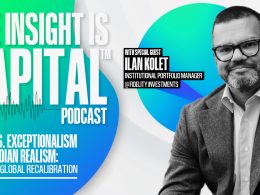by Russ Koesterich, Chief Global Strategist, iShares
Russ explains why it’s time for investors to change how they think about China, and he explains why there’s a strong case for viewing the Chinese market as a value -- rather than a growth -- play.
Those investing in the Chinese market have long done so hoping to profit from China’s breakneck growth. But China’s growth has slowed over the past year or so, as evidenced most recently in China’s weak July PMI report. It’s no wonder, then, that Chinese stocks have drastically underperformed developed markets over the last year.
Over the last 12 months, the MSCI China Index returned roughly 5% in dollar terms. Although this beats the 2.6% return for the MSCI Emerging Markets Index, it lags noticeably behind the 24% return of the MSCI World Index, an index of developed markets, during the same period.
But in my opinion, it’s time for investors to change how they think about Chinese stocks. There’s a strong case for why the Chinese market should now be viewed as a value, rather than a growth, play.
First, a little primer on investing for growth versus value. A growth company is one whose earnings are expected to grow at an above average rate. Similarly, a growth country can be thought of as one that is growing faster than the global growth average. While growth companies tend to be younger and smaller, growth countries tend to be smaller emerging economies, and both are typically priced based on their growth potential.
On the other hand, a value company, or country, tends to be more mature, bigger, and priced lower than where it should trade based on various fundamentals. Over time, both companies and countries can transition from growth to value plays. For instance, twenty years ago, a fast growing Microsoft (MSFT) was generally viewed as a growth play. Today, depending on its price, it’s more of a value play.
So here are the two main reasons to put China in the value category today.
China is the second largest economy in the world. While China’s growth is certainly still robust, it’s slowing. This, however, shouldn’t be a shock to investors. When an economy is as big as China’s is now, you would expect its growth to slow. In my team’s opinion, China has reached the size where investors should be focusing mostly on whether China looks cheap relative to its fundamentals. In other words, as a maturing economy, China is more like Microsoft today than Microsoft two decades ago. While China’s growth rate is still important, it should be of secondary importance to investors, assuming it doesn’t crash.
China looks undervalued based on its fundamentals. When you view Chinese stocks from the value perspective, they look cheap relative to other emerging markets and the broader market. For instance, the MSCI China index is currently trading at below 9x forward earnings, versus 10.6x for the MSCI EM index and nearly 15x for MSCI World index.
At these valuations, Chinese equities look like a good long-term value considering that it’s still growing faster than developed countries and other EM countries, including the rest of the BRIC countries. In addition, even if China’s growth slows to below the government’s current annual target of 7.5%, say to about 6%, this would still be a multiple of growth anywhere in the developed world.
And while the Chinese economy is slowing, this is intentional on the part of the Chinese authorities, who want to transition the economy to one driven more by consumption than by investment. This transition is good news for the market as it should help make China’s growth more sustainable and help stabilize the local financial sector over the long term.
To be sure, concerns about the stability of China’s financial system are also playing into the market’s poor performance lately. However, based on my team’s research, much of China’s underperformance can be attributed to most investors being stuck in a “growth-play” mentality. They’re focused on seeing signs of faster Chinese growth (such as more accommodative monetary policy or more aggressive fiscal stimulus) at a time when the country’s government is more tolerant of slower growth in exchange for structural reform. Thus, investors continue to be disappointed, and Chinese stocks suffer.
One caveat for investors — slowing rates of economic growth, even if they are still higher than in other parts of the world, can be associated with future earnings downgrades. That could put China at risk of becoming a value trap until its economic growth stabilizes.
While a downward earnings revision remains a near-term risk, at today’s valuation there is long-term opportunity in Chinese equities. For this reason, I continue to advocate an overweight to Chinese stocks, which can be accessed through the iShares China Large-Cap ETF (FXI) and the iShares MSCI China ETF (MCHI).
Russ Koesterich, CFA, is the iShares Global Chief Investment Strategist and a regular contributor to The Blog. You can find more of his posts here.
Sources: Bloomberg, Investment Strategy Group Research
The author is long FXI
Copyright © iShares














